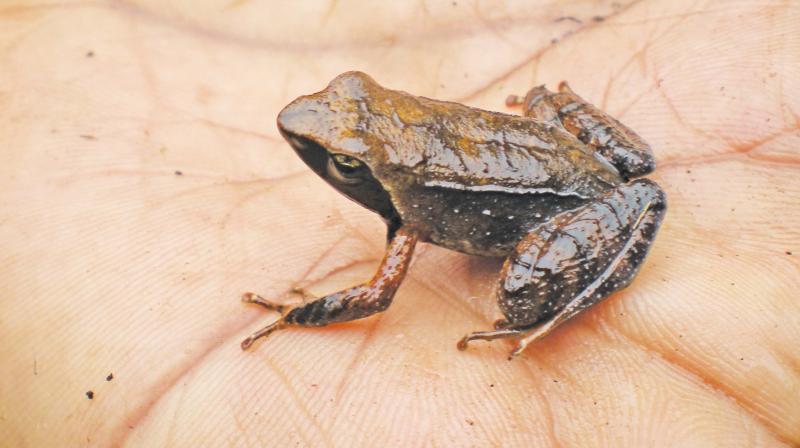Study eco-indicators to tackle climate change: S Paulraj
In the backdrop of the global warming it is important to study the changes and challenges in the mountain eco-system.

Ooty: Likening climate change factors to a ‘silent killer’ affecting living beings, Dr S. Paulraj, executive secretary of the Chennai Snake Park, stressed on research on eco-indicators to tackle climate change issues.
“Frogs and other amphibians and certain reptiles react fast to the changing climate. Research on such species will help get clues on their behavioral and physiological changes, and studies on disappearance of certain species and appearance of new species, and also prolonging drought can be used as eco-indicators to study and foresee the climate change impacts in the local levels,” he suggested.
Dr P. Kannan, assistant professor at Zoology and Wildlife Biology at Government Arts College here, said that amphibians and reptiles are most likely to be adversely affected by the global warming.
“Amphibians such as frogs are wet, soft and glandular skinned animals. Whereas, some reptiles are scaly skinned animals; both amphibians and reptiles are cold blooded animals which needed optimum temperature to survive. A steady rise in temperature would cripple their egg laying, incubation and hatching abilities and periodicity. Crocodiles and turtles, wherein the temperature determines the sex, need a optimum temperature to hold on to their regular reproduction rhythm and to maintain the sex ratio. The increase in temperature would affect the sex ratio in these species over the years which in turn would affect their ability to survive,” he explained.
In the backdrop of the global warming it is important to study the changes and challenges in the mountain eco-system. The venomous snake like cobra and viper, which avoid cold weather, may tend to move up to the top hills if the hill temperature increased duo to global warming. The presence of these venomous reptiles would create problems in the plantation fields that in turn pose threat to lives of plantation labour force and economy, Dr Kannan cautioned.

